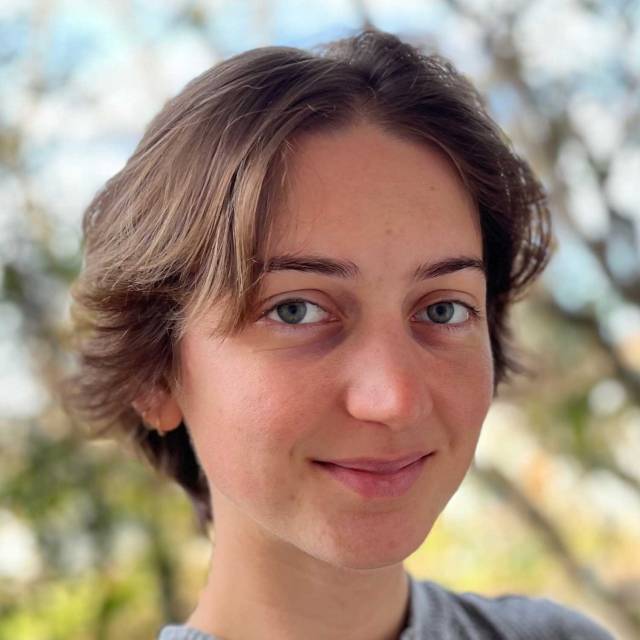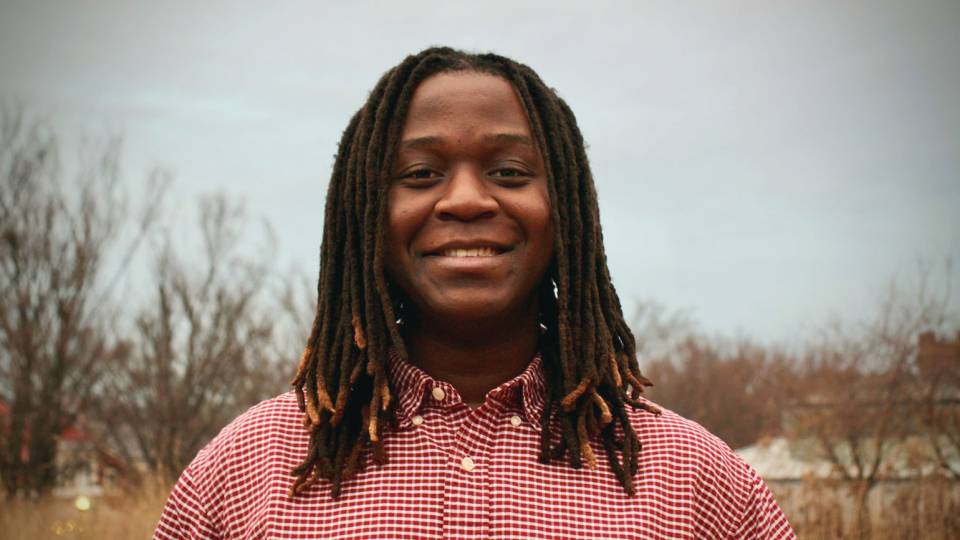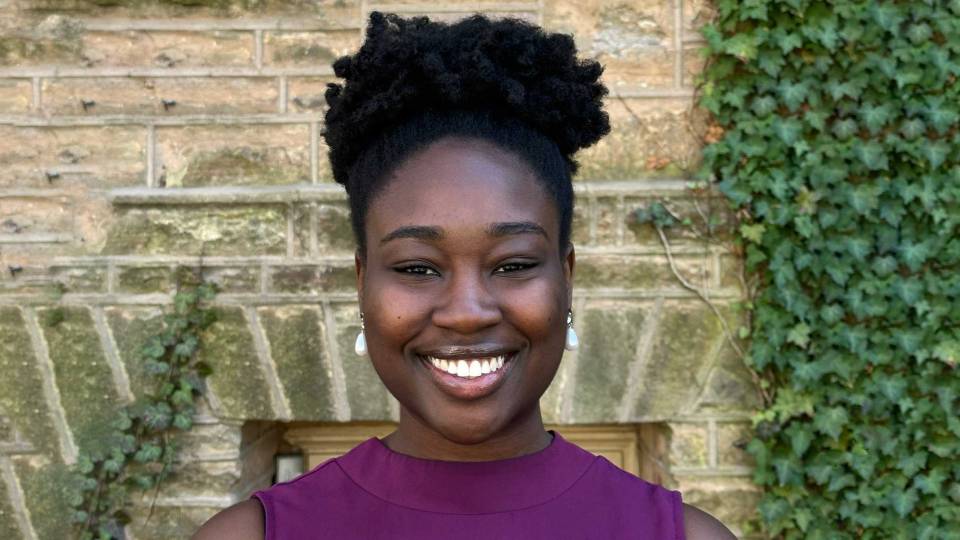Princeton University alumni Willow Dalehite of the Class of 2022 and Bennett Weissenbach of the Class of 2020 will head to the University of Cambridge in the fall as recipients of Gates Cambridge Scholarships. Dalehite and Weissenbach are among 23 U.S. winners of the scholarship.
About 80 scholarships annually give students from around the world the opportunity to pursue postgraduate study at the University of Cambridge. Both Dalehite and Weissenbach intend to pursue Ph.D. degrees at Cambridge; some Gates Cambridge scholars choose a one-year master’s program instead. Recipients from other countries will be announced in April.
The program was established in 2000 by a donation from the Bill and Melinda Gates Foundation to Cambridge to build a global network of future leaders committed to improving the lives of others.
Willow Dalehite

Willow Dalehite
Dalehite, who concentrated in ecology and evolutionary biology (EEB) at Princeton, will pursue a Ph.D. in zoology at Cambridge.
“Willow is amazing and will blossom even further at Cambridge,” said Andrew Dobson, an EEB professor. “She is already a highly accomplished scientist, and Cambridge will provide the perfect sequence of challenges as she rises to become a star in the field of evolutionary ecology and animal behavior.”
Her Princeton work focused on birds — for her senior thesis, she recorded and analyzed wren duets, and for a separate project she investigated the parenting habits of the greater ani — but at Cambridge she plans to turn her attention to parenting in smaller creatures: burying beetles.
“Burying beetles care for their young by laying their eggs near found carrion and creating a benign environment in which they can grow,” she said. “The world’s species are under an evolutionary time crunch: Can they adapt to the rapidly changing climate fast enough to survive? These beetles are a remarkable study system because they can be studied both in the wild and in the lab over multiple generations.
“My primary research questions are about how cooperative behaviors such as parental care can influence evolutionary change and biodiversity,” she said. “I hope to learn more about the factors that are important in ensuring species’ continued persistence, as well as how social behavior can influence local adaptation. These questions are increasingly important in the context of human-induced environmental change.”
Following her Ph.D., Dalehite hopes to pursue continued research in evolutionary biology, working to understand how best scientists can help stem the tide of biodiversity loss by better understanding how species might respond to changes in their environment.
Dalehite’s passion for the natural world flowed through her time at Princeton. She served as president of the University’s chapter of the Audubon Society, and she worked for the Office of Disability Services as a note-taker for “Sensory Ecology.” She also spent a semester doing field work in Kenya at the Mpala Research Centre and the Turkana Basin Institute.
“Willow is simply a dream to have as part of a research team,” said Christina Riehl, an associate professor of EEB and Dalehite’s thesis adviser. “The graduate students in my group think of her as a colleague, as do I, because she is so knowledgeable, careful and mature. She’s independent-minded but works extremely well with other people; she learns like a sponge, and shares her own knowledge constructively.”
In addition to the Gates Cambridge Scholarship, Dalehite has won numerous awards and prizes, including the 2022 Senior Book Prize for Excellence in EEB, awarded to the EEB senior with the highest GPA; the 2021 High Meadows Environmental Institute Becky Colvin Memorial Award; a 2018 National Merit Scholar Award; and membership in the Sigma Xi Scientific Research Honor Society. She graduated summa cum laude with highest honors in biology.
Ben Weissenbach

Ben Weissenbach
Weissenbach, who majored in English with a certificate in environmental studies, will pursue a Ph.D. in Polar Studies at Cambridge’s Scott Polar Research Institute, an interdisciplinary program that brings together scientists, social scientists and environmental humanists.
“I spent a lot of the past five years in the Arctic, learning about polar climate change and also grappling with my generation’s technological inheritance — how digital media are changing our attentional habits and our capacity to wonder at the natural world,” he said. “Polar regions are hotspots of climate change, and they’re fascinating regions for many other reasons as well.”
Weissenbach is an environmental journalist whose work has appeared in National Geographic, Smithsonian Magazine and the L.A. Times, and he is currently under contract with Grand Central Publishing, an imprint of Hachette, to turn his senior thesis into a book.
“Among the many thousands of students who have passed through my classes, Ben stands out as an exceptionally talented thinker and an astute, intrepid writer,” said Rob Nixon, the Thomas A. and Currie C. Barron Family Professor in Humanities and the Environment and a professor of English and the High Meadows Environmental Institute at Princeton University, who supervised Weissenbach’s thesis.
“To generate the interviews, journeys and insights that animate the thesis, Ben undertook three trips to Alaska, during the summer of 2018, the winter of 2019, and the summer of 2019,” Nixon said. “The thesis that emerged from those trips is extraordinary, bringing together, for a wide potential readership, Ben’s inimitable mix of scientific curiosity, ethical concern, skilled character development, and brilliant evocations of the Alaskan landscape, flora, and fauna.”
Weissenbach’s travels and writing were inspired by John McPhee, the Pulitzer Prize-winning 1953 Princeton alumnus and senior fellow in journalism who has taught writing at Princeton since 1975. “I read McPhee’s ‘Coming into the Country’ the summer after my freshman year, and it kind of it stopped me dead in my tracks,” said Weissenbach. “I realized that I wanted to go to Alaska and see how it had changed since McPhee wrote about it” in 1976 and 1977.
“I took his course, and he was an incredible mentor,” Weissenbach said. “And then I began this project in Alaska, and it’s turned into my first book, a series of scientific adventures in the Arctic to understand how the region’s transforming.”
“Ben is in love with Alaska, and his wilderness experiences there have been widespread — from the tundra of Arctic Alaska to a harrowing climb on Denali,” said McPhee. “He is also from southern California, an Angeleno, a surfer. He knows what it means to get ‘barreled’ in ‘heavy, barreling waves,’ to be ‘tubed,’ ‘pitted,’ ‘kegged,’ ‘slotted.’ Imagine his sacrifice in coming to a place like Princeton. The deprivation, though, did not last long. To do a piece for my writing course in 2018, he got in touch with a professor at Stockton University — in Atlantic County, New Jersey — who teaches a class called ‘The Science of Forecasting Waves.’
“On an early March day, they went to Long Beach Island, where, only two days before, the surfing professional Brett Barley, of North Carolina, ‘had scored the longest barrel of his life.’ Conditions were obviously dangerous — off the scale. Ben got caught in littoral drift so powerful that it sent him and his board crashing onto a concrete-block jetty. ‘What I felt was not relief at being back on solid land,’ he wrote, ‘but deep shame at having left it.’”
In addition to the Gates Cambridge Scholarship, Weissenbach’s honors include a 2020-22 Henry Luce Scholarship; the Gregory T. Pope ’80 Prize for Science Writing, awarded to one graduating senior each year; the Lee M. Elman Class of 1958 Thesis Prize in Honor of Ernest Hemingway; the Class of 1870 Junior Prize, awarded to “the best scholar in English Literature” in the junior class; the Martin A. Dale ’53 Summer Award; and Phi Beta Kappa.
The Gates Cambridge award fully funds postgraduate study and research in any subject at the University of Cambridge. It was established through a $210 million donation to the University of Cambridge from the Bill and Melinda Gates Foundation in 2000 that remains the largest single donation to a U.K. university. Since the first cohort in 2001, Gates Cambridge has awarded more than 2,000 scholarships to scholars from 111 countries.
In addition to outstanding academic achievement, the program places an emphasis on social leadership with the aim of creating a global network of future leaders committed to improving the lives of others. Eilis Ferran, provost of the Gates Cambridge Trust, said, “We know that these scholars — and those we announce in early April from other parts of the world — will flourish in the rich, international community at Cambridge and will go on to make a significant impact in their fields and to the wider global community.”




